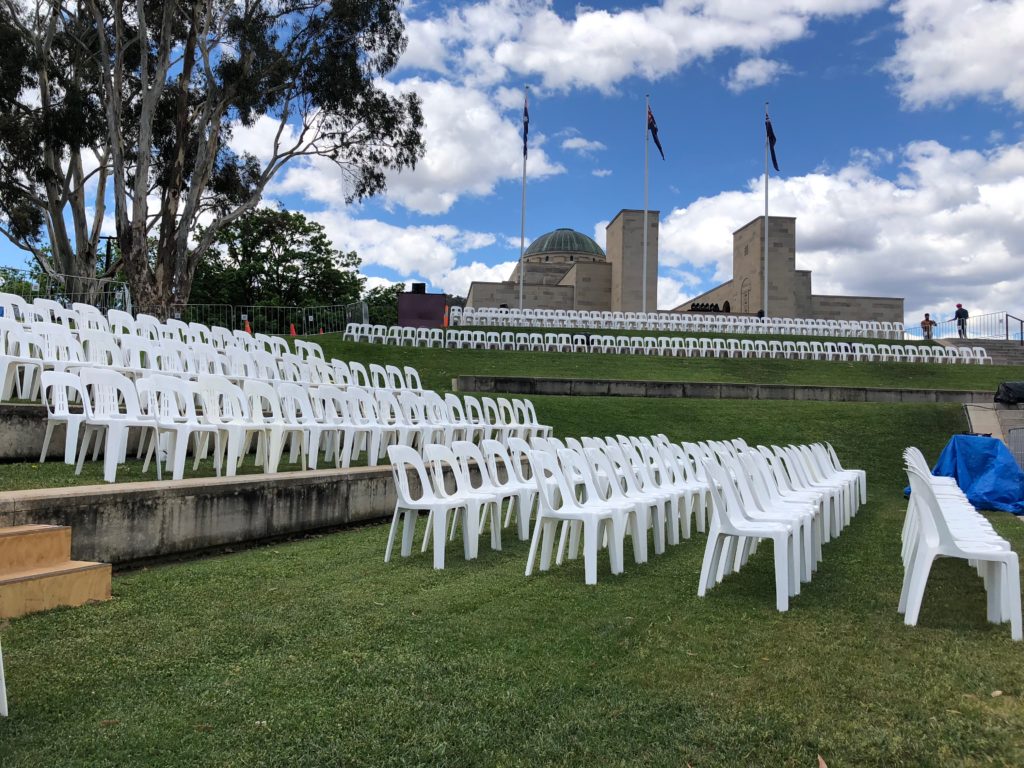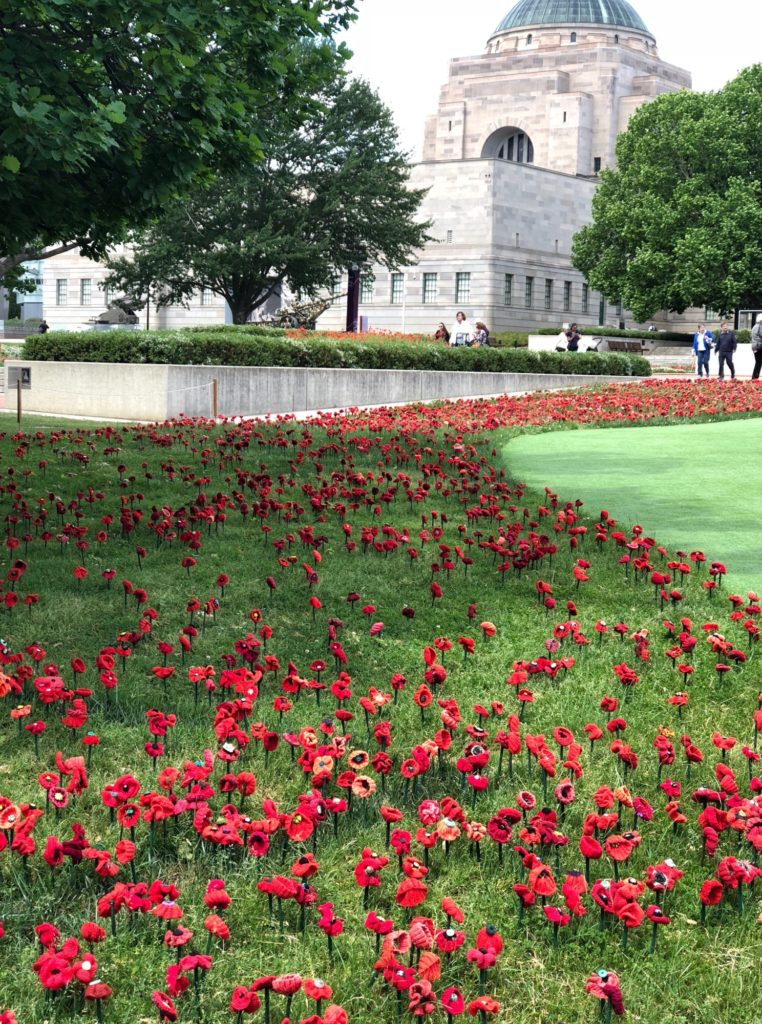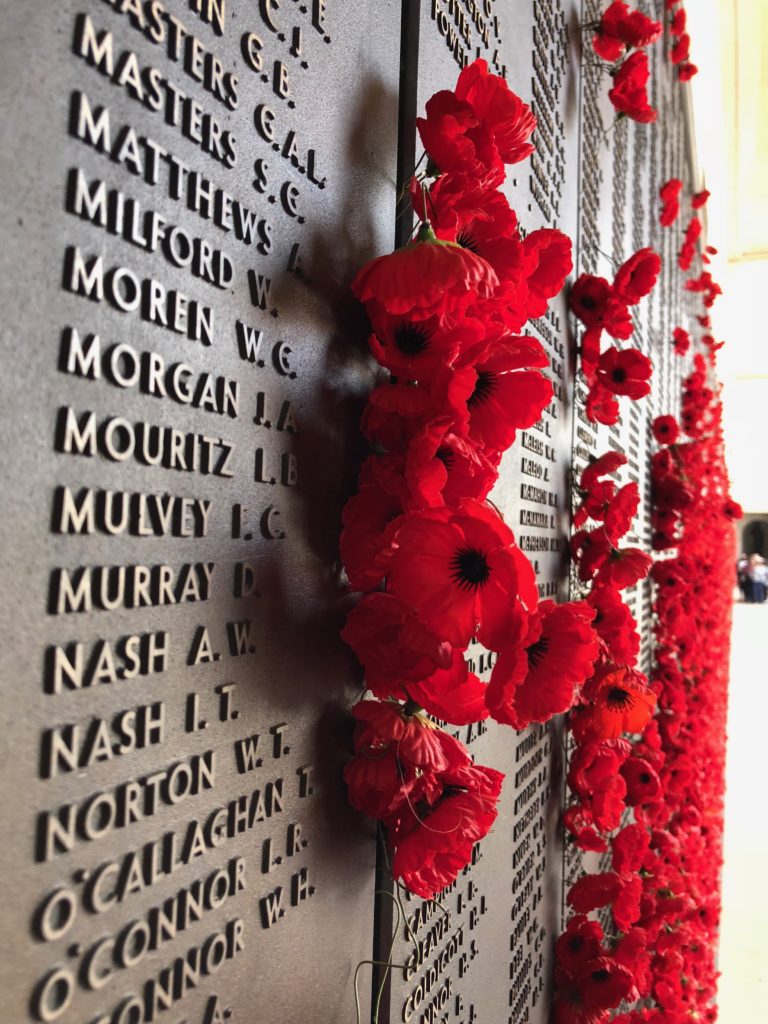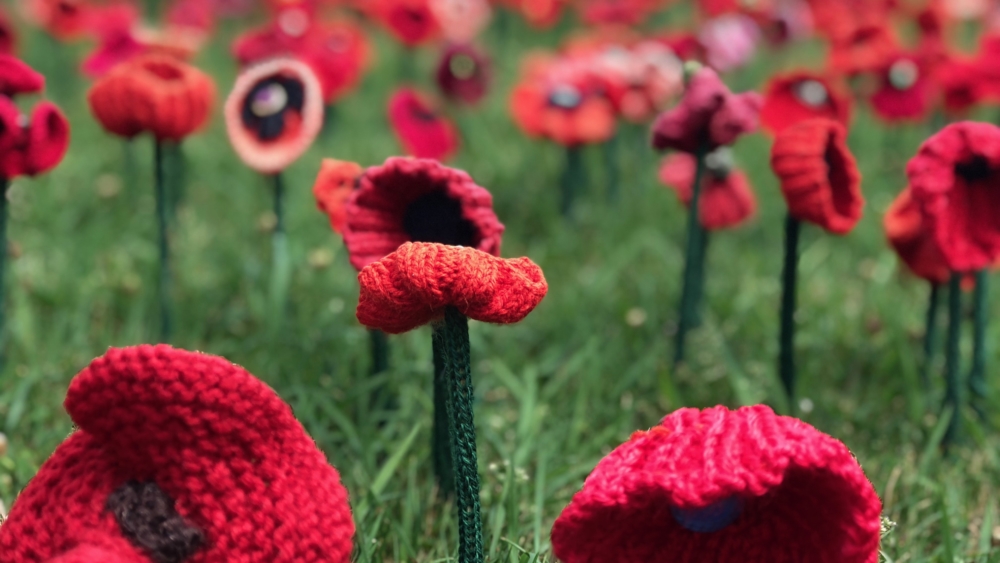War used to steal away the young men, like my uncle
Millions more lives have been lost in military conflict since the first Armistice Day
I am sitting in the heart of the Australian War Memorial, the sound of machine gun fire in the background. It is a re-enactment of the sights and sounds of the Somme battlefield over 100 years ago. A group of school children is listening to a tour guide explain something of the horrors of the conditions of the Western Front.
I try and picture my grandfather. He was shot by a sniper, not by machine gun. He was gassed on an earlier occasion. Each time he returned to the battlefield. What kind of impact did that have on his psyche? I never met him. He died before I was born. What I knew of him were bullet points (an appropriate descriptor as I sit here in the AWM).
As a child, the headline images seemed enough. If I knew about the military cross, it had faded from my mind. I did know of his injuries. But more than that, I was in awe of a man who raised five children without his wife, their mother. He would have had help. He was, after all, running a country medical practice, but what was he like? I don’t know. I can’t ask my dad. I left these questions too late. He died aged 55, not long after I was married.
What has drawn me to the Australian War Memorial now? While I feel a great loss having never met my paternal grandparents, I can perhaps glean a sense of the man through his son, my father. Dad never knew his mother, so I have no idea of how much of Gladys was reflected in him. Actually, I feel even sadder that I never met Gladys. She must have been remarkable! A qualified teacher who undertook a Master of Arts majoring in Psychology, graduating from the University of Sydney in 1915! To support the family while Roy retrained as a doctor on his return from the war, she tutored at her alma mater.
And so I am in Canberra, preparing to attend the Remembrance Day ceremony at the Australian War Memorial on Sunday November 11.

Anticipating the crowds for Remembrance Day.
Hundreds of empty white plastic chairs are sitting in the sun at the front of the Memorial. In just a day or so I will fill one of those chairs, one of many lost in our private thoughts as together we honour those who died or were injured fighting for their country.
Lest we forget. Words we say on solemn days such as Remembrance Day. One minute’s silence at 11am on 11th of the 11th. Lest we forget.
Lest we forget those who died, those soldiers who sacrificed their lives, so we could be free. The symbolic red poppy is everywhere … 62,000 knitted poppies adorn the grass surrounding the Memorial to commemorate Australian lives lost in World War I. Every statue, plaque, sculpture has small artificial red poppies entwined around it.

Poppies outside the Australian War Memorial in Canberra.
I think back to my modern history classes at school. The world would have been very different if the Allies had lost this so-called “war to end all wars”. And yet millions and millions more lives have been lost because of military conflict around the world since the first Armistice Day a century ago.
There are many differences between that devastating war which ended one hundred years ago to armed conflict now, but perhaps the starkest is that civilians have become the target.
Of course, the Australian men who all signed up for the big adventure in 1914 were mere volunteers not career soldiers. My great uncle, Frederic Christie Mulvey, was one of those. His name is located at panel 3 of the Roll of Honour at the Australian War Memorial. Not many names before his and many, many names after. Lance Corporal Mulvey enlisted with the Second Australian Light Horse Regiment. He could have been one of those young Diggers featured in the Gallipoli movie, full of cheeky fun as they explored Egypt and practised military manoeuvres in the sand dunes before boarding boats set for the Dardanelles, Turkey.
According to the records stored at the AWM, Great Uncle Eric, aged 22, landed at Gallipoli on May 12, 1915. He was dead two days later. His entire combat experience lasted less than 48 hours. All I know of my grandfather’s younger brother is that he was a hydrographic surveyor based in Newcastle. He was unmarried.
He never had a chance to have a life. To love, to raise children, to grow old. That is what war used to do – steal away the young men. Now it is not so discriminating. It takes babies, children, young men, old women, any who are in the way of stealth bombs, drone attacks, suicide bombers, and so on.
My grandfather, Roy Dadson Mulvey, a teacher, was married to Gladys, another teacher. He enlisted on the news of the death of his brother. Gladys was pregnant with their first child.
Grandfather Roy served on the Western Front. According to military records, he was injured twice. There are weekly reports in the AWM archives in his handwriting. I have read his medical reports. I know he was 5’9’’ (not as tall as me).
Captain Mulvey’s recommendation for the military cross is signed on March 9, 1917, by the Major General Commanding 5th Australian Division. The recommendation references four military engagements, on the German trenches at Fleurbaix and Armentieres (where “he showed conspicuous gallantry and devotion to duty under heavy fire”); on the Somme Front when Captain Mulvey “was constantly in action and often under heavy fire,” and finally on February 25, 1917, “… he was wounded by a sniper in the front line while selecting positions for his guns.”

Frederic Christie Mulvey’s name on the Honour Roll.
Like thousands of ANZACs, he returned from the war a different man. He did not go back to the classroom; instead, he retrained as a medical doctor and devoted the rest of his life to working as a country GP. Unfortunately, his life was equally hard as a civilian. Gladys, an academic and a woman of great achievement in her own right, died in childbirth trying to deliver their sixth child. This child also died. His eldest son, Eric, named after his brother, died in Papua New Guinea in World War II (Eric W Mulvey’s name is also recorded on the Roll of Honour, as part of the Army Medical Corps at panel 87) and Roy died while on his honeymoon in the 1950s.
Our lives are defined by war. We might not recognise it, but the impact of war and military conflicts ripples across our lives in both seen and unseen ways. Addictions such as alcohol and drugs, domestic violence, PTSD and other mental health issues continue to affect our own culture.
Across the globe, millions of people are seeking refuge outside their own borders due to terrorism, civil war, inter-country conflicts, religious persecution and the list goes on.
The UNHCR reports that we are now witnessing the highest levels of displacement on record.
“An unprecedented 68.5 million people around the world have been forced from home. Among them are nearly 25.4 million refugees, over half of whom are under the age of 18. There are also an estimated 10 million stateless people who have been denied a nationality and access to basic rights such as education, healthcare, employment and freedom of movement.” (UNHCR website)
The damage humanity is repeating on itself over and over and over again beggars belief. Sadly, we harm each other at an intimate level as well as nation to nation, people group to people group. As a child, I could never understand the description of God as a vindictive father in Numbers 14:18:
“The Lord is slow to anger, abounding in love and forgiving sin and rebellion. Yet he does not leave the guilty unpunished; he punishes the children for the sin of the parents to the third and fourth generation.”
It is only as an adult that it began to make sense. It is hard for families to break out of inter-generational bondage: violent fathers model such behaviour to their sons; here in Australia, there are families locked in inter-generational unemployment; alcoholic parents can produce alcoholic children. At the micro level, human beings seem unable to maintain peace with each other. Our nightly news reports the impact of our fallen world at the macro level.
I have visited places of enormous suffering – Mozambique in the midst of a devastating internal conflict that ravaged the country and its people for a decade; Rwanda after the 1994 genocide; Bangladesh days after it had been struck by a massive tidal wave, killing more than 135,000 people.
What sustains me is the knowledge that God is with us, in our deepest darkness. If God did not exist, there would be nothing to give my life hope and meaning. As Paul writes in Philippians 4: “Do not be anxious about anything, but in everything, by prayer and petition, with thanksgiving, present your requests to God. And the peace of God, which transcends all understanding, will guard your hearts and your minds in Christ Jesus.”
Let us all not only pray for peace but do all we can to contribute to peace in our small corners.
Email This Story
Why not send this to a friend?


